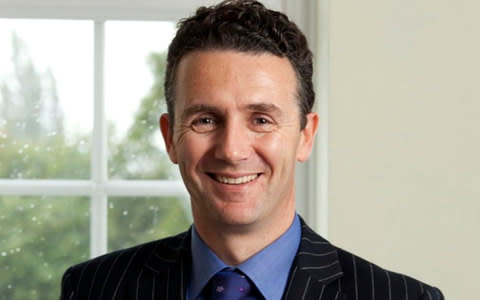'FOMO' affects parents as well as children, leading headmaster says

Fear of missing out - better known as "Fomo" - affects parents as well as children, a leading headmaster has said, as they experience vicarious social angst on behalf of their offspring.
David Lloyd, headmaster of Solihull School, said that prolific social media use among both parents and children is to blame for the growing phenomenon.
According to Mr Lloyd, "Fomo" is the new "Keeping Up With the Joneses", as parents see evidence of the extra-curricular activities that their children's peers are doing and become jealous.
"It seems pupils are increasingly suffering from the social media condition, Fomo," said Mr Lloyd, who is head of the £12,500-a-year co-educational school.

"Understandably, this fear is shared by many parents even though they are worried about what their child might encounter when joining in."
He said that a range of activities could prompt the Fomo feeling among parents – for example, a social function, a music practise, a drama rehearsal or sports training.
Fear of missing out is a type of social anxiety, which has been defined by Andrew Przybylski at the University of Essex as the fear that other people might be having rewarding experiences that you’re missing.
It is exacerbated by social media, where you can see photographs, videos or updates about what your friends are doing.
Mr Lloyd went on: "Fomo has arguably replaced ‘keeping up with the Joneses’ and is the anxiety created by the thought of missing out on an activity or event.

"It is a modern syndrome driven by technology and instant communication and affects many pupils, as well as parents on behalf of their children.
"The angst is very real and is extremely detrimental to wellbeing, with young people failing to appreciate the joy of the present and catastrophising about the future."
Mr Llyod said that he has noticed an increasing dependence on social media among pupils at Solihull school, which was founded in 1560.
He said that for parents, FoMO could be prompted by their own social media use or hearing from their children about what their friends are doing.
“I am sure that parents and their own use of social media causes them to be concerned on behalf of their children,” he said.
“I am sure it is also the discourse over the dinner table with their children, about what they perceive other parents are allowing their children to do. Social media has exacerbated the whole thing.”

 Yahoo News
Yahoo News 
